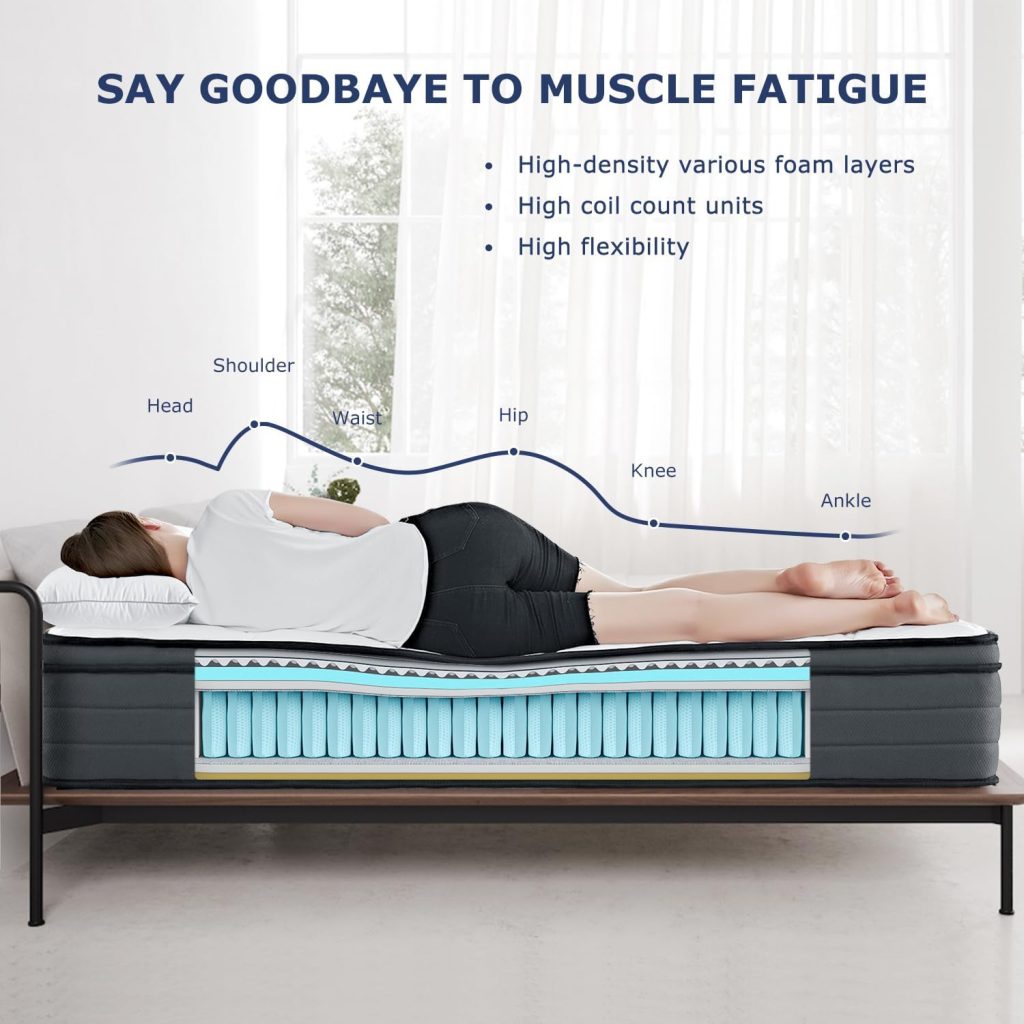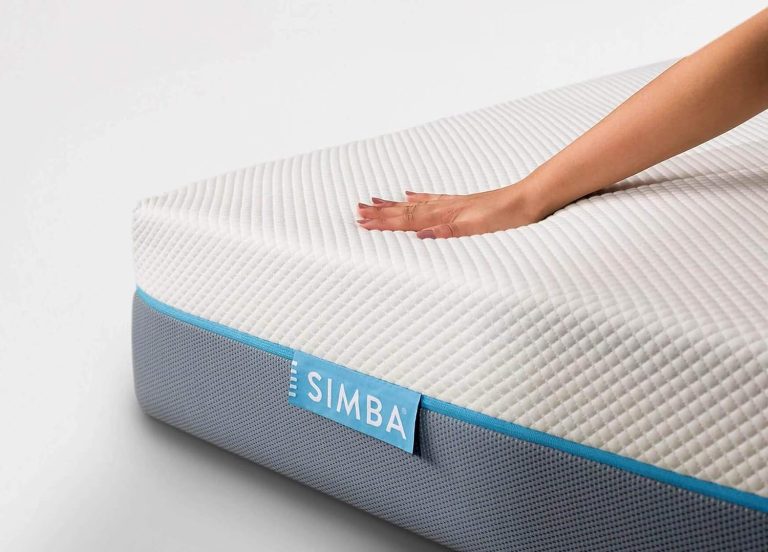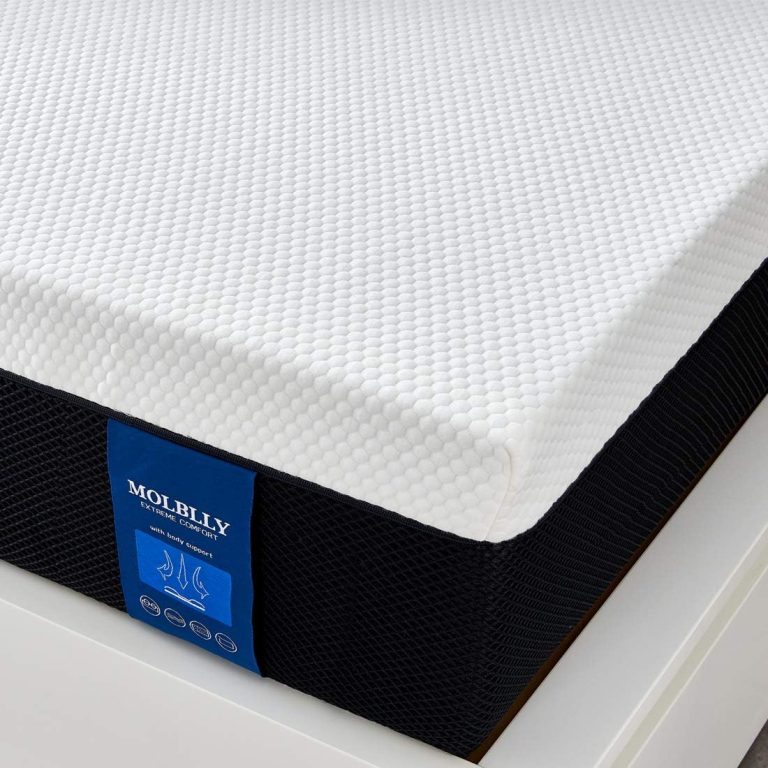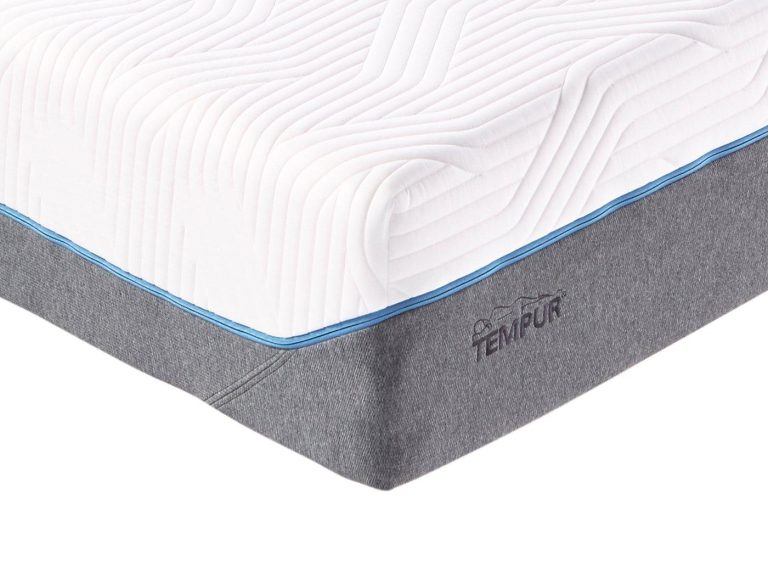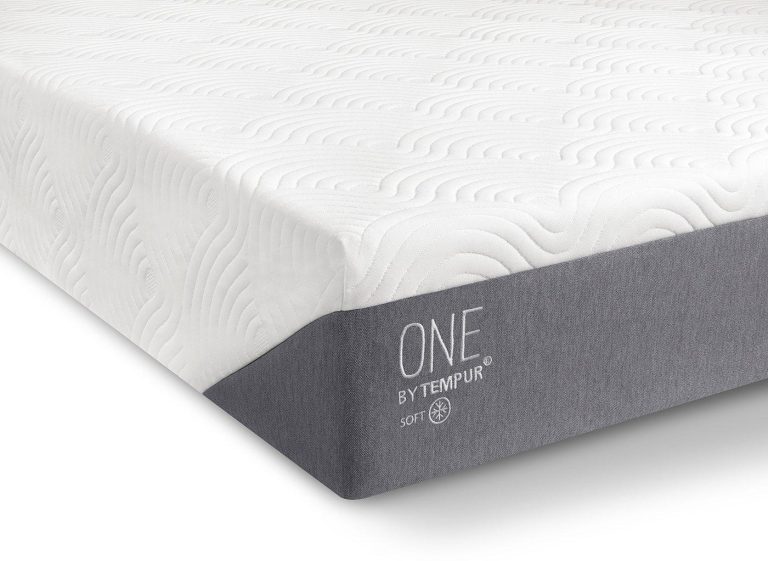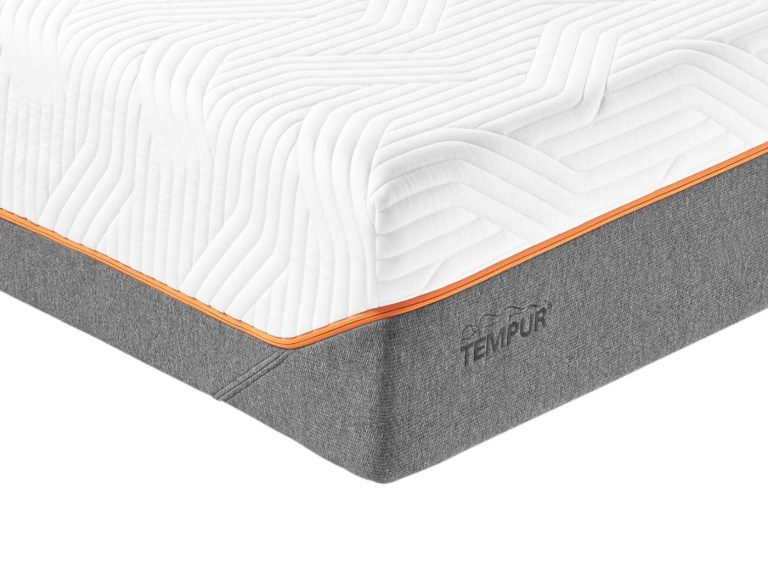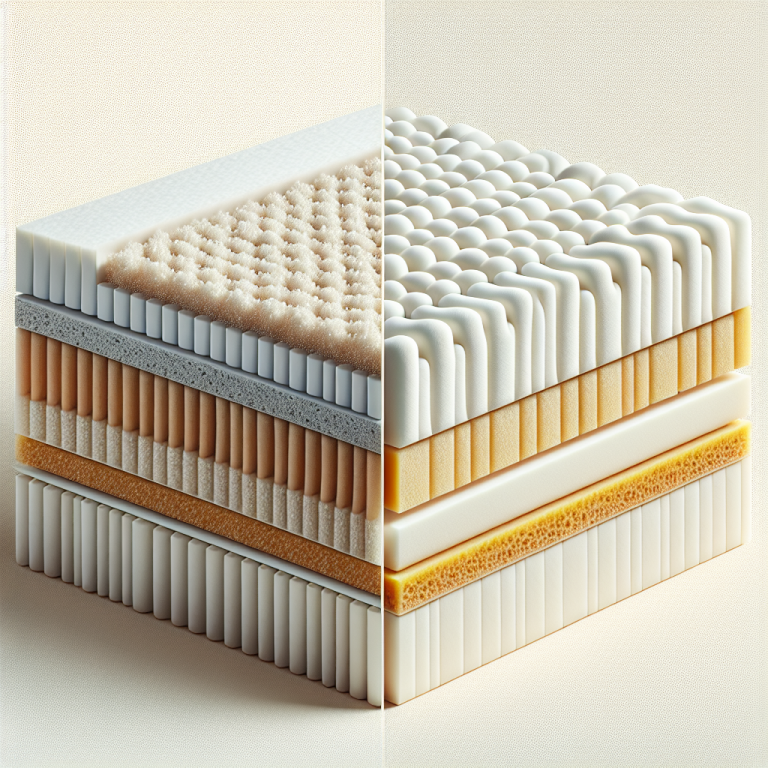Imagine waking up every morning feeling refreshed and pain-free, ready to take on the day ahead. Can you buy a mattress that promotes proper spinal alignment and helps you achieve this dream-like scenario? The answer is a resounding yes. Investing in a mattress specifically designed to support your spine can make a world of difference in your overall well-being. In this article, we will explore the key factors to consider when choosing a mattress that promotes proper spinal alignment, ensuring you wake up feeling your best each day. Say goodbye to restless nights and hello to a healthier, more rejuvenated you.
Table of Contents
ToggleWhat is proper spinal alignment?
Definition of proper spinal alignment
Proper spinal alignment refers to the straight and natural position of the spine while lying down, maintaining its natural curves. This alignment ensures that the spine is well-supported, reducing the risk of strain, discomfort, and injury.
importance of proper spinal alignment
Proper spinal alignment plays a crucial role in maintaining good overall health and well-being. When the spine is properly aligned, it allows for optimal functioning of the nervous system, proper circulation, and quality sleep. It also helps prevent and alleviate back pain, muscle tension, and various spinal conditions.
Factors affecting spinal alignment
Mattress firmness
The firmness level of a mattress can significantly impact spinal alignment. A mattress that is too firm can create pressure points on the body, leading to improper alignment. On the other hand, a mattress that is too soft may not provide adequate support, causing the spine to sag and lose its natural alignment.
Mattress support
In addition to firmness, the support provided by a mattress is essential for maintaining proper spinal alignment. The mattress should evenly distribute body weight and promote neutral alignment of the spine. Insufficient support can result in misalignment, leading to discomfort and potential long-term issues.
Sleeping position
Your sleeping position also influences spinal alignment. Different positions require varying levels of support to keep the spine in its natural alignment. Whether you sleep on your back, side, stomach, or a combination of positions, it is essential to choose a mattress and sleep accessories that accommodate your preferred position.
Pillow choice
Alongside the mattress, the choice of pillow is crucial in maintaining proper spinal alignment. The pillow should support the head and neck in a neutral position, in line with the natural curvature of the spine. Using the wrong pillow can strain the neck, leading to misalignment and discomfort.
Body weight and shape
Body weight and shape can affect the pressure placed on the mattress and how it supports your body. Heavier individuals may require firmer support to prevent sinking too deeply, while lighter individuals may need a softer mattress to contour to their body shape. Considering your specific weight and shape is important when selecting a mattress that promotes proper spinal alignment.
Overall sleep environment
Beyond the mattress and pillow, the overall sleep environment can impact spinal alignment. Factors such as temperature, humidity, noise levels, and light levels can all play a role in creating a comfortable and conducive sleep environment. This promotes quality sleep, which in turn supports proper spinal alignment.
Choosing the right mattress
Understanding different mattress types
To choose the right mattress that promotes proper spinal alignment, it is important to understand the different types available. Options include memory foam, latex, innerspring, hybrid, and air mattresses. Each type has its own characteristics and benefits, so it is essential to consider your specific needs and preferences.
Consideration of spinal alignment
When selecting a mattress, prioritise those that explicitly consider spinal alignment. Look for features such as zoned support or targeted pressure relief, as these can help maintain proper alignment and alleviate potential discomfort. Reading product descriptions and customer reviews can provide valuable insights into a mattress’s ability to support spinal alignment.
Testing the mattress
To ensure a mattress is suitable for promoting proper spinal alignment, it is advisable to test it before purchasing. Visit a mattress store and spend a significant amount of time lying on different mattresses in various positions. Pay attention to how the mattress supports your body and whether it maintains a neutral spinal alignment. This hands-on approach helps you make an informed decision based on personal comfort and support.
Consulting with a healthcare professional
If you have specific spinal conditions or concerns, it may be beneficial to consult with a healthcare professional before purchasing a mattress. They can provide expert advice based on your individual needs and help guide you towards the best mattress options for promoting proper spinal alignment.
Mattress firmness and support
Effects of firmness on spinal alignment
The firmness of a mattress has a direct impact on spinal alignment. A mattress that is too firm can cause excessive pressure on certain areas of the body, leading to misalignment. Conversely, a mattress that is too soft may not provide adequate support, allowing the spine to sink unnaturally. Finding a balance between firmness and support is key to maintaining proper spinal alignment.
importance of proper support
Proper support is essential for spinal alignment. A mattress that lacks support can lead to misalignment of the spine, which can result in discomfort and potential long-term issues. The right level of support allows the spine to maintain its natural curves and promotes even weight distribution, reducing the likelihood of pressure points and strain.
Finding the right balance
The ideal mattress strikes a balance between firmness and support to promote proper spinal alignment. It should provide enough cushioning to relieve pressure points while also offering adequate support to keep the spine properly aligned. Finding the right balance varies depending on individual preferences and body types, so it is important to consider personal comfort and support needs.
Adjustable firmness options
For those who prefer the ability to customise their mattress firmness, adjustable firmness options are available. These mattresses allow users to change the firmness level to their desired preference, providing the flexibility needed for optimal spinal alignment. Adjustable-firmness mattresses are particularly beneficial for couples who have different firmness preferences.
Sleeping positions and spinal alignment
Back sleeping
Sleeping on your back is generally considered the best position for promoting proper spinal alignment. When lying on your back, it is important to use a pillow that supports the natural curve of the neck and maintains alignment with the rest of the spine. Additionally, a mattress that provides balanced support for the entire body helps keep the spine in a neutral position.
Side sleeping
Side sleeping is another common sleep position that can be conducive to proper spinal alignment. When sleeping on your side, it is important to choose a mattress that contours to the body’s curves, providing adequate support to the shoulders and hips. A pillow with appropriate height and firmness should be used to maintain proper alignment of the head and neck.
Stomach sleeping
Sleeping on your stomach can put strain on the spine and neck, potentially leading to misalignment and discomfort. However, if stomach sleeping is your preferred position, it is important to choose a mattress with a medium-firm to firm level of support to prevent excessive sinking. A flatter pillow or no pillow at all is recommended to minimise strain on the neck.
Combination sleeping
Many people switch between different sleeping positions throughout the night, known as combination sleeping. If you tend to move between positions, it is essential to choose a mattress and pillow that accommodate each position’s support needs. This ensures your spine remains properly aligned, regardless of the position you find yourself in during sleep.
Impact of spinal alignment in each position
Maintaining proper spinal alignment in each sleeping position is key to preventing discomfort and potential long-term issues. Whether you sleep on your back, side, stomach, or a combination of positions, ensuring adequate support and alignment can help alleviate strain and promote quality sleep.
Choosing the right pillow
Optimal pillow height
The height of your pillow plays an important role in maintaining proper spinal alignment. The pillow should be of an appropriate height to support the natural curvature of the neck and align it with the rest of the spine. A pillow that is either too thick or too thin can strain the neck, leading to misalignment and discomfort.
Proper head and neck alignment
The head and neck should be properly aligned with the spine during sleep to promote spinal alignment. The pillow’s loft, or thickness, should be chosen based on the individual’s sleeping position to maintain this alignment. Whether you sleep on your back, side, or stomach, the pillow should keep your head and neck in a neutral position.
Consideration of sleeping position
Different sleeping positions require different types of pillow support. Back sleepers typically benefit from a thinner pillow that helps maintain a neutral spine. Side sleepers often require a loftier pillow to fill the gap between the head and shoulder, keeping the spine aligned. Stomach sleepers may not require a pillow or may opt for a very thin one to minimise strain on the neck.
Pillow materials and characteristics
Pillow materials and characteristics can also affect spinal alignment. The type of pillow filling, such as memory foam or down alternative, can impact its ability to contour to the head and neck’s natural curves. Additionally, pillows with adjustable loft or contoured designs are available, providing customisable support for optimal spinal alignment.
Trial and error for ideal pillow
Finding the ideal pillow for proper spinal alignment often requires a trial-and-error process. It may take time to determine the right combination of pillow height, material, and characteristics that align with individual preferences and sleeping habits. Trying different pillows or consulting with a healthcare professional can help identify the best option for your spinal alignment needs.
Considerations for body weight and shape
Effect of body weight on spinal alignment
Body weight can affect how a mattress supports spinal alignment. Heavier individuals may require a firmer mattress to prevent excessive sinking, which can lead to misalignment and discomfort. Lighter individuals, on the other hand, may find a softer mattress more suitable to contour to their body shape and maintain proper alignment.
Support requirements for different body shapes
Different body shapes may have specific support needs for proper spinal alignment. For example, individuals with broader or narrower shoulders may require mattresses that provide targeted support in those areas. Similarly, individuals with curvier or straighter body shapes may benefit from mattresses that offer differential support to maintain proper alignment.
Customisable mattress options
To cater to various body types and support needs, customisable mattress options are available. These mattresses allow users to adjust the firmness or support in different areas of the bed, tailoring the sleeping surface to their specific body shape and promoting proper spinal alignment. Customisable options offer versatility and allow for individualised comfort.
Weight distribution considerations
Even weight distribution is essential for proper spinal alignment. A mattress that evenly distributes body weight can help prevent pressure points and ensure proper support for the spine’s natural curves. By supporting weight distribution, the mattress promotes healthy alignment and minimises the risk of discomfort or strain.
Impact of the sleep environment
Temperature and humidity
The sleep environment’s temperature and humidity can influence the quality of sleep and, consequently, spinal alignment. A cooler room temperature and proper humidity levels promote more comfortable and restful sleep, allowing the body to relax and the muscles to recover. Maintaining a comfortable sleep environment contributes to better overall spinal health and alignment.
Noise and light levels
Excessive noise and light can disrupt sleep and negatively impact spinal alignment. Minimising noise and light levels in the sleep environment promotes uninterrupted and restorative sleep, enhancing the body’s ability to maintain proper alignment. Blackout curtains, earplugs, and white noise machines are helpful tools for creating a conducive sleep environment.
Allergens and dust mites
Allergens and dust mites in the sleep environment can contribute to respiratory issues and disrupt sleep quality. For individuals sensitive to allergens, using hypoallergenic bedding materials, regular laundering of bedding, and using mattress protectors can help create a clean and allergen-free sleep environment. This supports proper spinal alignment by eliminating potential irritants and promoting a comfortable sleep environment.
Optimal mattress maintenance
Proper mattress maintenance is crucial for maximising its lifespan and ensuring continuous support for spinal alignment. Regularly flipping and rotating the mattress can prevent sagging and maintain even wear. Additionally, using a mattress protector to guard against spills, stains, and allergens helps preserve the mattress’s integrity and promotes a hygienic sleep environment.
Special considerations for specific conditions
Back pain and spinal conditions
Individuals with back pain or pre-existing spinal conditions require special consideration when choosing a mattress for proper spinal alignment. They may benefit from mattresses with targeted support or pressure relief features that alleviate discomfort and promote alignment. Consulting with a healthcare professional is particularly important to address specific concerns and ensure the right mattress choice.
Scoliosis
Scoliosis, a sideways curvature of the spine, requires careful consideration when selecting a mattress. Depending on the severity of the condition, individuals may require different levels of support or specialised mattresses that accommodate the unique spinal curvature. Consulting with a healthcare professional experienced in scoliosis management is essential to determining the most suitable mattress for promoting proper spinal alignment and comfort.
Arthritis
Arthritis, an inflammation of the joints, can cause pain and stiffness that impact spinal alignment. Individuals with arthritis may benefit from mattresses that offer pressure relief and adaptable support to minimise discomfort. Memory foam or latex mattresses, known for their ability to contour and support the body, can be particularly suitable for those with arthritis. Discussing mattress options with a healthcare professional knowledgeable about arthritis management is recommended.
Sleep apnea
Sleep apnea, a sleep disorder characterised by interruptions in breathing during sleep, can also impact spinal alignment. Proper support and alignment of the neck and head are crucial for those with sleep apnea to maintain an open airway. Adjustable beds or pillows designed specifically for sleep apnea can provide the necessary support and alignment, promoting better sleep quality and spinal alignment.
Pregnancy
Pregnancy brings unique considerations for spinal alignment due to the changes in a woman’s body. As the pregnancy progresses, additional weight and changes in the centre of gravity can lead to strain on the spine. Pregnancy-specific mattresses or mattress toppers that provide targeted support and cushioning can help alleviate discomfort and maintain proper spinal alignment. Consulting with a healthcare professional or a specialist in maternity bedding can guide pregnant individuals in selecting the most suitable options.
Consulting a healthcare professional
For individuals with specific conditions or concerns related to spinal alignment, it is vital to consult with a healthcare professional. They can offer personalised guidance and recommendations, taking into account individual needs, medical history, and conditions. A healthcare professional can provide valuable insights and ensure informed decisions when choosing a mattress that promotes proper spinal alignment.
Summary and conclusion
Proper spinal alignment is essential for maintaining good overall health and promoting quality sleep. Factors such as mattress firmness, support, sleeping position, pillow choice, body weight and shape, sleep environment, and specific conditions all influence spinal alignment. Choosing the right mattress and sleep accessories that consider these factors is crucial for ensuring proper support and alignment while sleeping. By prioritising spinal alignment, you can improve sleep quality, alleviate discomfort, and support your long-term spinal health.



